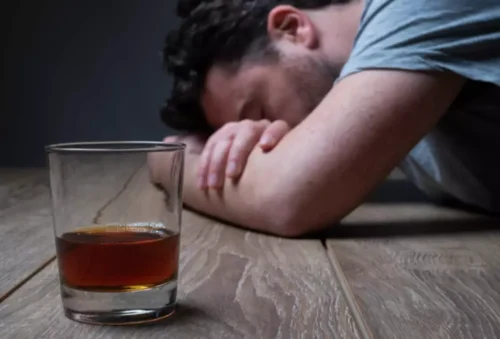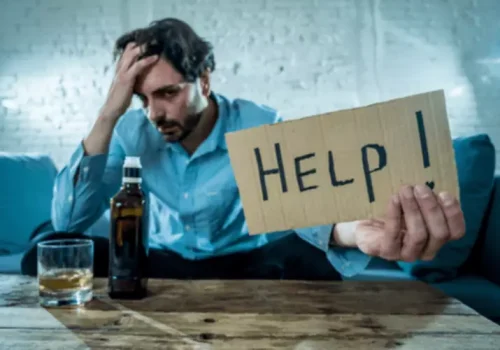
Other 12-step programs include Al-Anon, Gamblers Anonymous, Overeaters Anonymous, Sexaholics Anonymous, and others. These groups use similar principles, but each has its own unique approach. The Narcotics Anonymous (NA) Big Book states that “we were powerless over our drug problem” as its first tenet. Like AA members, NA members believe they cannot control drugs without the help of a higher power.
What Groups Use Powerlessness to Benefit Recovery?
As the Medical Director, Mark works with the staff to coordinate the appropriate level of care for each individual client. He works directly with the clients on management of medical issues both related to and separate from their addiction, ensuring comprehensive health care plans that ensure our clients’ chances at recovery. What he has found to be most rewarding about working in the addictions treatment field is being able to help suffering addicts and alcoholics to realize their fullest potential. The first step to recovery, according to Alcoholics Anonymous (AA), is to admit that you are powerless over alcohol and that your life has become unmanageable. This crucial acknowledgment is often the hardest for many people, as those who struggle with alcoholism frequently find themselves in denial about the severity of their problem. As a part of treatment at MARR, our clients complete a First Step Inventory, which includes examples of powerlessness and unmanageability from various areas of life.

What Does It Mean to Be Powerless Over Alcohol and Other Drugs?

After all, while people with AUD are powerless over alcohol, their loved ones feel powerless as well. They can’t help you break your addiction, and they feel stuck in uncomfortable positions while they make excuses for your drinking. By admitting that you are currently powerless, you make room to restore power by seeking assistance. At that point, you may discover it’s easy to move on to Step 2 of AA—and all the ones that follow.

Group Therapy for Addiction Treatment: Harnessing Collective Support for Recovery
The reluctance is compounded by the fact that alcohol is a socially accepted substance, making it difficult for many to recognize the severity of their addiction. Furthermore, access to treatment can be hindered by socioeconomic factors, lack of healthcare resources, or insufficient support systems. This dilemma represents a significant public health challenge, as it often goes unnoticed or ignored due to social stigma, denial, or lack of awareness. Individuals https://ecosoberhouse.com/ struggling with alcoholism may not seek help due to feelings of shame, fear of judgment, or a belief that they can manage their drinking on their own. It means recognizing that one’s drinking has become uncontrollable and that attempts to moderate or quit have repeatedly failed. This concept highlights the overwhelming compulsion to drink despite the negative consequences it brings, such as health issues, damaged relationships, and financial problems.

Examples of Powerlessness In Sobriety List
At Spero Recovery, we understand how hard it can be to admit that you are powerless over the effects of drugs and alcohol on your life. It’s not only damaging to your confidence, it can be humiliating. We all want to be considered strong and in charge of ourselves, so admitting powerlessness seems like a huge contradiction to that goal.
- Accepting that your life is unmanageable is often easier than admitting powerlessness over alcohol.
- For reasons that are largely genetically determined, some people’s brains are more easily hijacked by addictive substances.
- The 12-step program is based on the belief that one day at a time we can take control of our lives by making positive changes.
- She works with The Freedom Center team to develop and implement policies, procedures and oversees Intakes and Transportation.
HALT Method for Addiction Recovery: A Comprehensive Approach to Relapse Prevention
- Michael’s goal is to connect current client and alumni with resources to strengthen their life in recovery.
- Many peer recovery groups use examples of powerlessness in sobriety to help participants accept themselves for who they are.
- Michael is the Community Outreach Coordinator and Alumni Director.
I have experience working with all age groups and backgrounds and have worked in hospitals, inpatient, outpatient, and partial hospitalization programs providing clinical social work services. As an integral part of The Freedom Center, Melissa’s multifaceted experience shines through her past work in various capacities. Her presence on this team highlights her dedication to crisis intervention and her ability to provide critical support during vulnerable times. Prior to her role in crisis intervention, Melissa worked extensively in the substance abuse and dual diagnoses treatment field.
Family Nurse Practitioner
In the long term, maintaining abstinence from alcohol and drugs requires a lot of effort. The most effective way to stay sober is by using the tools of recovery. This includes attending meetings regularly, getting counseling, practicing mindfulness, and staying connected with others who share similar struggles. Reach out today to learn more about our personalized treatment plans and partial care programs. Start your journey to a healthier, happier life with Enlightened Solutions.
- Completing Step 1 of Alcoholics Anonymous can look different for everyone.
- The ways one tells themselves and everyone around them “see I’m okay” when they most likely are not.
- Breaking the isolation of addiction is a pivotal outcome of Step One.
- Having faced addiction in his own life, and having worked through recovery, James truly understands what it takes to get sober and stay sober.
Tips for Starting and Working Step 1 of AA

